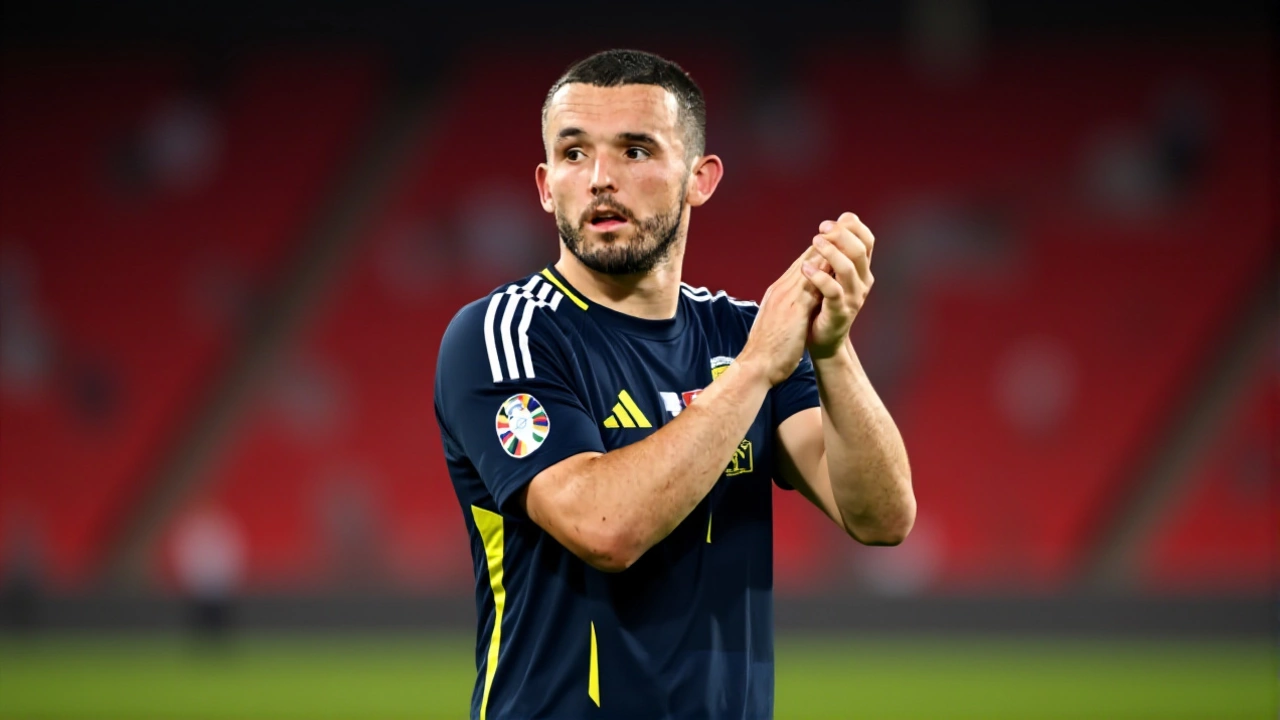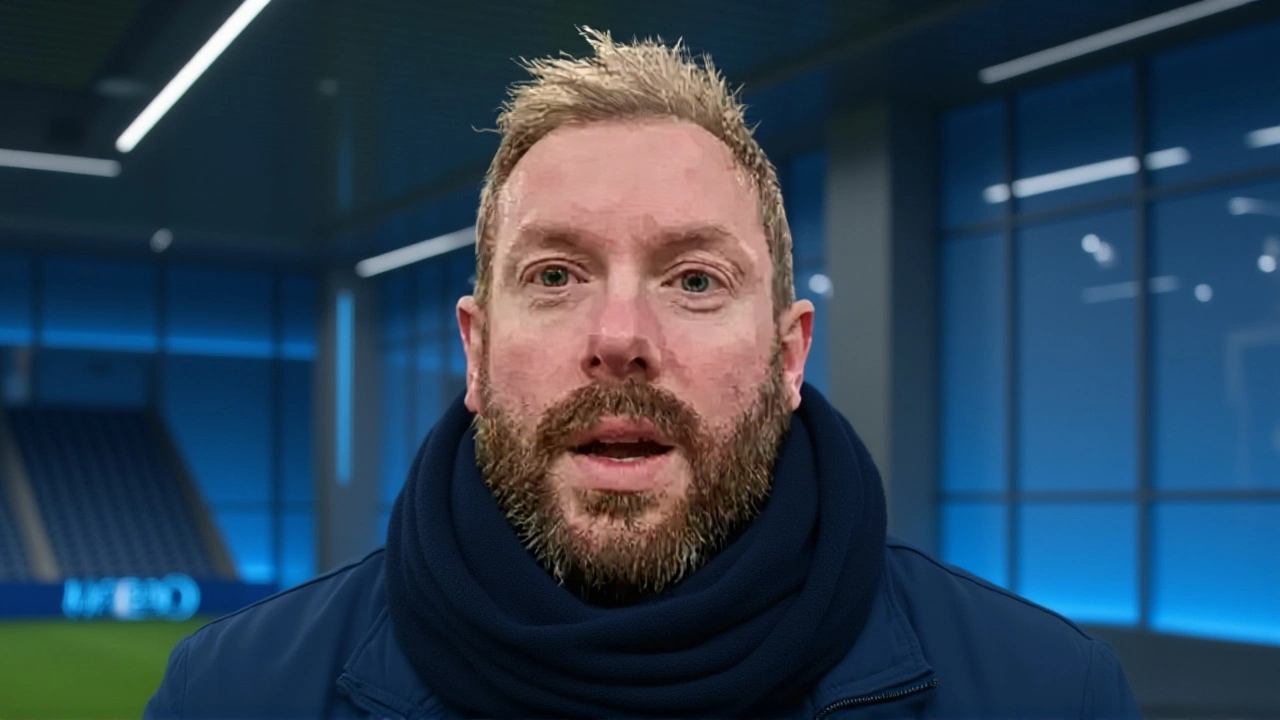When Kieran Tierney smashed home a stoppage-time free kick and Kenny McLean followed up with a thunderous volley, the roar from Hampden Park didn’t just shake the stands—it echoed across a nation that hadn’t seen its men’s team at the FIFA World CupCanada, Mexico, and the United States in nearly three decades. On Tuesday, November 18, 2025, Scotland stunned Denmark 4-2 in front of a delirious home crowd, clinching automatic qualification for the 2026 tournament and ending a 28-year drought that began after their last World Cup appearance in France in 1998.
A Nation Held Its Breath—Then Roared
The match began under a crisp Glasgow night, the kind where the air smells like damp grass and distant chip shops. Fans had been waiting since the 1998 tournament in France, where Scotland exited in the group stage amid controversy and heartbreak. Since then, they’d come close—so close—in 2002, 2010, and even 2022, only to be denied by penalty shootouts, late goals, or cruel draws. But this time, with Steve Clarke, 61, at the helm, everything felt different. His team played with grit, discipline, and a rare sense of unity. Goals from Billy Gilmour and Lyndon Dykes gave Scotland a 2-1 lead at halftime, but Denmark equalized through a well-placed header from Pierre-Emile Højbjerg early in the second half. Tension thickened. Then, in the 92nd minute, Tierney curled a free kick over the wall. 3-2. The stadium exploded. Three minutes later, McLean pounced on a rebound after a Denmark clearance went awry. 4-2. Game over. History made.
What This Means for Scottish Football
For the Scottish Football Association, headquartered right there at Hampden Park, this wasn’t just a win—it was redemption. The organization had spent years rebuilding youth academies, investing in grassroots programs, and shifting away from the old "lucky escape" mentality. Now, those efforts are paying off. The team finished top of UEFA European Qualifying Group C with 21 points, ahead of Denmark (17), Serbia (15), and Kazakhstan (8). No playoffs. No nerve-shredding second chances. Just pure, unfiltered qualification.
The ripple effects were immediate. By 8 a.m. on Wednesday, November 19, 2025, Glasgow’s streets were still lined with scarves and flags. Pubs opened early. A spontaneous parade formed near George Square. Even the Daily Record, Scotland’s most-read tabloid, ran a front page that simply read: "Yancer, the 28-year wait is over." The paper, based in Edinburgh, has covered Scotland’s football heartbreaks for decades. This time, the headline wasn’t ironic. It was joyous.

From Westminster to Zurich: The World Took Notice
The victory didn’t just stir Scotland—it grabbed global attention. At Prime Minister’s Questions in the Palace of Westminster on Wednesday morning, UK Prime Minister referenced the match before addressing economic policy. "Mr. Speaker, let me start by congratulating Scotland on their magnificent victory last night, qualifying for the World Cup for the first time since 1998," he said. The chamber erupted in applause. Rarely does a football result dominate parliamentary proceedings.
Meanwhile, FIFA published a feature on its official site, "Scotland qualify | FIFA World Cup 26," highlighting the dramatic finish. "Relive the dramatic 4-2 win over Denmark that took Scotland back to the FIFA World Cup for the first time in 28 years," the headline read. Even Sky News, in its 0:04:32 UTC broadcast that morning, called it "a thriller," though it mistakenly referred to "extra time"—a slip, since the goals came in stoppage time of regular play. Still, the sentiment was right: this was football at its most visceral.
What Comes Next?
Now, the real work begins. Scotland will be drawn into one of the six groups for the 2026 World Cup, hosted across North America from June 11 to July 19, 2026. They’ll face teams like the United States, Mexico, or potentially Brazil or Spain—depending on qualifiers. But for now, the focus is on preparation. Clarke has already confirmed he’ll remain as manager through the tournament. Young talents like 20-year-old striker Leo Higuita, who impressed in the qualifiers, are being fast-tracked into the senior squad.
The financial windfall will be significant. FIFA allocates over $10 million to each participating team as base funding, with bonuses for wins and progression. That money will go directly into the Scottish Football Association’s development fund, potentially transforming youth facilities across the Highlands and Islands.

Why This Matters Beyond Football
Scotland’s qualification isn’t just about goals and trophies. It’s about identity. For a nation that often feels overshadowed in global politics, this was a moment of collective pride. A poll by YouGov on November 19 showed 87% of Scots said the win made them "prouder than ever" to be Scottish. Social media trends in Edinburgh, Aberdeen, and Dundee were dominated by #WeAreScotland, with videos of grandparents dancing in living rooms and children wearing replica jerseys to school.
And while Denmark—led by captain Christian Eriksen—left the pitch defeated, their sports federation in Brøndby issued a gracious statement: "We played our hearts out. Scotland deserved it. We’ll be watching them in 2026." That’s the spirit of sport.
Frequently Asked Questions
How did Scotland qualify without going through the playoffs?
Scotland finished first in UEFA European Qualifying Group C with 21 points, ahead of Denmark (17), Serbia (15), and Kazakhstan (8). Only the top team in each of the ten qualifying groups earns automatic entry to the World Cup—no playoffs needed. This is the first time since 2010 that Scotland avoided the playoff route, making their qualification even more significant.
Who scored Scotland’s goals in the match against Denmark?
Billy Gilmour opened the scoring in the 14th minute, Lyndon Dykes doubled the lead in the 38th minute, Pierre-Emile Højbjerg pulled one back for Denmark in the 52nd minute, and then Kieran Tierney and Kenny McLean netted the decisive goals in stoppage time (92nd and 95th minutes). All four Scottish goals came from different players, showcasing the team’s balanced attack.
Why is this Scotland’s first World Cup since 1998?
After reaching the 1998 World Cup, Scotland failed to qualify in 2002, 2006, 2010, 2014, 2018, and 2022—often falling short in playoffs or finishing second in their group. The 2026 campaign was their most consistent since 1998, with six wins, three draws, and only one loss. Manager Steve Clarke’s tactical discipline and the emergence of young talent turned a once-doubtful team into group winners.
How will this impact Scottish football funding and infrastructure?
FIFA guarantees each qualifying team at least $10 million in participation funds, with additional bonuses for wins and progression. The Scottish Football Association plans to reinvest 70% of this into grassroots programs, including new pitches in rural communities and expanded coaching academies. The government has also pledged £5 million in matched funding, signaling long-term commitment to football development.
What’s the significance of Steve Clarke’s leadership in this campaign?
Steve Clarke, 61, became Scotland’s manager in 2019 and has steadily rebuilt the team’s identity. He replaced the old "long ball" style with possession-based football and defensive organization. Under him, Scotland went from losing 4-0 to Germany in 2021 to winning 2-1 at Wembley in 2025. His calm demeanor and ability to unify players from different clubs—from Celtic to Rangers to Premier League sides—was key to their cohesion. He’s now Scotland’s most successful manager since Alex Ferguson.
Will Scotland play any warm-up matches before the 2026 World Cup?
Yes. The Scottish Football Association has already scheduled friendlies against Portugal in March 2026 and the United States in May 2026, both to be played in Scotland. These will help the team adapt to the North American climate and playing surfaces. There are also talks of a training camp in Florida to simulate tournament conditions before departing for the tournament.
